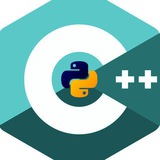Have you heard about the Qajar image collection? I’ve prepared a notebook to add color to these precious pictures.
notebook: https://drive.google.com/file/d/1rfvp-1lKBwA675A6c0isV8ig2T8EtbNe/view?usp=sharing
It will be run on colab, just need to upload image on your colab and colorize them.
Images: https://drive.google.com/drive/folders/1XVE6EGD8kYnR2G8rR_Dc0JKYi9ykA0vg
notebook: https://drive.google.com/file/d/1rfvp-1lKBwA675A6c0isV8ig2T8EtbNe/view?usp=sharing
It will be run on colab, just need to upload image on your colab and colorize them.
Images: https://drive.google.com/drive/folders/1XVE6EGD8kYnR2G8rR_Dc0JKYi9ykA0vg
👍3
Here are the Colored images:
https://t.me/QajarC
https://t.me/QajarC
👍1
High-Performance Computing with Python @ JSC
The following topics will be covered:
Short review of vectorized programming with NumPy
Interactive parallel programming with IPython
Profiling and optimization
High-performance NumPy
Just-in-time compilation with numba
Distributed-memory parallel programming with Python and MPI
Bindings to other programming languages and HPC libraries
Interfaces to GPUs
https://gitlab.jsc.fz-juelich.de/sdlbio-courses/hpc-python-2024
The following topics will be covered:
Short review of vectorized programming with NumPy
Interactive parallel programming with IPython
Profiling and optimization
High-performance NumPy
Just-in-time compilation with numba
Distributed-memory parallel programming with Python and MPI
Bindings to other programming languages and HPC libraries
Interfaces to GPUs
https://gitlab.jsc.fz-juelich.de/sdlbio-courses/hpc-python-2024
GitLab
sdlbio-courses / HPC Python 2024 · GitLab
GitLab - JSC
👍2
Scientific Programming
📖Software Engineering for Data Scientists From Notebooks to Scalable Systems Catherine_Nelson Definitely useful book to fill the gap between researchers and software engineers.
Linkedin
کتابی برای پر کردن فاصله بین محققان و مهندسان نرم افزار. | Abolfazl Ziaeemehr
کتابی برای پر کردن فاصله بین محققان و مهندسان نرم افزار.
کدهای نوشته شده توسط مهندسان دارای ساختار منظم تر، پایداری بیشتر و خطای کمتر است. ولی معمولا تغییر دادن آنها نیاز به تخصص بیشتر دارد. در واقع کدهای پیچیده تری هستند.
از طرف دیگر کدهای محقق ها معمولا…
کدهای نوشته شده توسط مهندسان دارای ساختار منظم تر، پایداری بیشتر و خطای کمتر است. ولی معمولا تغییر دادن آنها نیاز به تخصص بیشتر دارد. در واقع کدهای پیچیده تری هستند.
از طرف دیگر کدهای محقق ها معمولا…
This media is not supported in your browser
VIEW IN TELEGRAM
AI powered jupyter notebook.
Github
Github
Rye: a Hassle-Free Python Experience
Rye is a comprehensive project and package management solution for Python. Born from its creator's desire to establish a one-stop-shop for all Python users, Rye provides a unified experience to install and manages Python installations, pyproject.toml based projects, dependencies and virtualenvs seamlessly. It's designed to accommodate complex projects, monorepos and to facilitate global tool installations.
Introduction video
Rye is a comprehensive project and package management solution for Python. Born from its creator's desire to establish a one-stop-shop for all Python users, Rye provides a unified experience to install and manages Python installations, pyproject.toml based projects, dependencies and virtualenvs seamlessly. It's designed to accommodate complex projects, monorepos and to facilitate global tool installations.
Introduction video
YouTube
Rye: a Hassle-Free Python Experience (Rye 0.21 Demonstation)
Demonstrates the then latest version of Rye (0.21) and now it can be used to manage Python projects and interpreters.
For more information see https://rye-up.com/
For more information see https://rye-up.com/
Professional Python (2024).pdf
5.7 MB
This one looks good for a weekend
Steven Weinberg.pdf
374.4 KB
The 5 most important points explicitly mentioned in the document are:
1. Start doing research early: Begin research even if you don't know everything, as learning along the way is effective.
2. Engage with challenging areas: Pursue fields that may seem messy or unclear, as they offer opportunities for creative work.
3. Forgive yourself for wasting time: Recognize that in the real world, it's hard to identify which problems are important or solvable at a given time.
4. Dive into uncharted territories: Exploring unclear areas of science can lead to creativity and significant discoveries.
5. Learn the history of science: Understanding the history of science can provide context, make your work more meaningful, and help avoid oversimplified models of science.
1. Start doing research early: Begin research even if you don't know everything, as learning along the way is effective.
2. Engage with challenging areas: Pursue fields that may seem messy or unclear, as they offer opportunities for creative work.
3. Forgive yourself for wasting time: Recognize that in the real world, it's hard to identify which problems are important or solvable at a given time.
4. Dive into uncharted territories: Exploring unclear areas of science can lead to creativity and significant discoveries.
5. Learn the history of science: Understanding the history of science can provide context, make your work more meaningful, and help avoid oversimplified models of science.
👍1
Still working on it, including Python scripts to reproduce some of the figures in the book.
GitHub
GitHub
